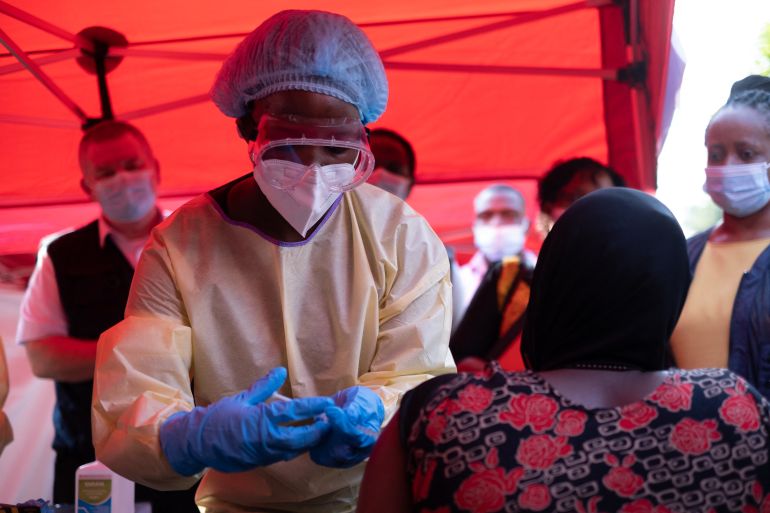Uganda Launches First Clinical Trial for Ebola Vaccine
Recently, Uganda initiated a groundbreaking clinical trial for a vaccine targeting the Sudan species of the Ebola virus. This move, in collaboration with the World Health Organization (WHO) and global partners, follows the confirmation of an outbreak on January 30. The speed of this trial is unprecedented, marking advancement in emergency vaccine research.
About Ebola Virus
- Ebola is a severe disease caused by orthoebolaviruses, first identified in 1976.
- It primarily affects humans and primates, with transmission occurring through contact with infected bodily fluids.
- The virus is endemic to sub-Saharan Africa, with fruit bats as its natural hosts.
- Symptoms can appear between two to 21 days post-infection, leading to a high fatality rate.
Vaccine Development and Clinical Trial
- The current clinical trial is the first to assess a vaccine specifically for the Sudan virus variant.
- The candidate vaccine is a recombinant vesicular stomatitis virus (rVSV) vaccine, donated by the non-profit organisation IAVI.
- This trial is being led by researchers from Makerere University and the Uganda Virus Research Institute (UVRI).
Support and Collaboration
The trial has garnered financial and logistical support from WHO, the Coalition for Epidemic Preparedness Innovations (CEPI), and other international bodies.
Trial Methodology
The study employs a randomised, ring vaccination strategy. This method has proven effective in containing outbreaks by vaccinating those who have been in close contact with infected individuals. The first phase will involve approximately 40 participants, including contacts of the first confirmed case.
Implications for Future Outbreaks
The rapid initiation of this trial offers hope for effective vaccine development against the Sudan virus. If successful, it could change the landscape of Ebola management and preparedness for future outbreaks. Researchers anticipate gathering data within months, which could inform global health strategies.
Current Treatment Options for Ebola
Currently, there is no licensed cure for Ebola. Treatment focuses on supportive care, including fluid management and blood transfusions. Experimental therapies have shown promise but require further testing. The average fatality rate for Ebola is around 50%, underscoring the urgency of developing effective vaccines.
Month: Current Affairs - February, 2025
Category: Science & Technology Current Affairs







